
My wife prepared a great dinner.

My wife prepared a great dinner.

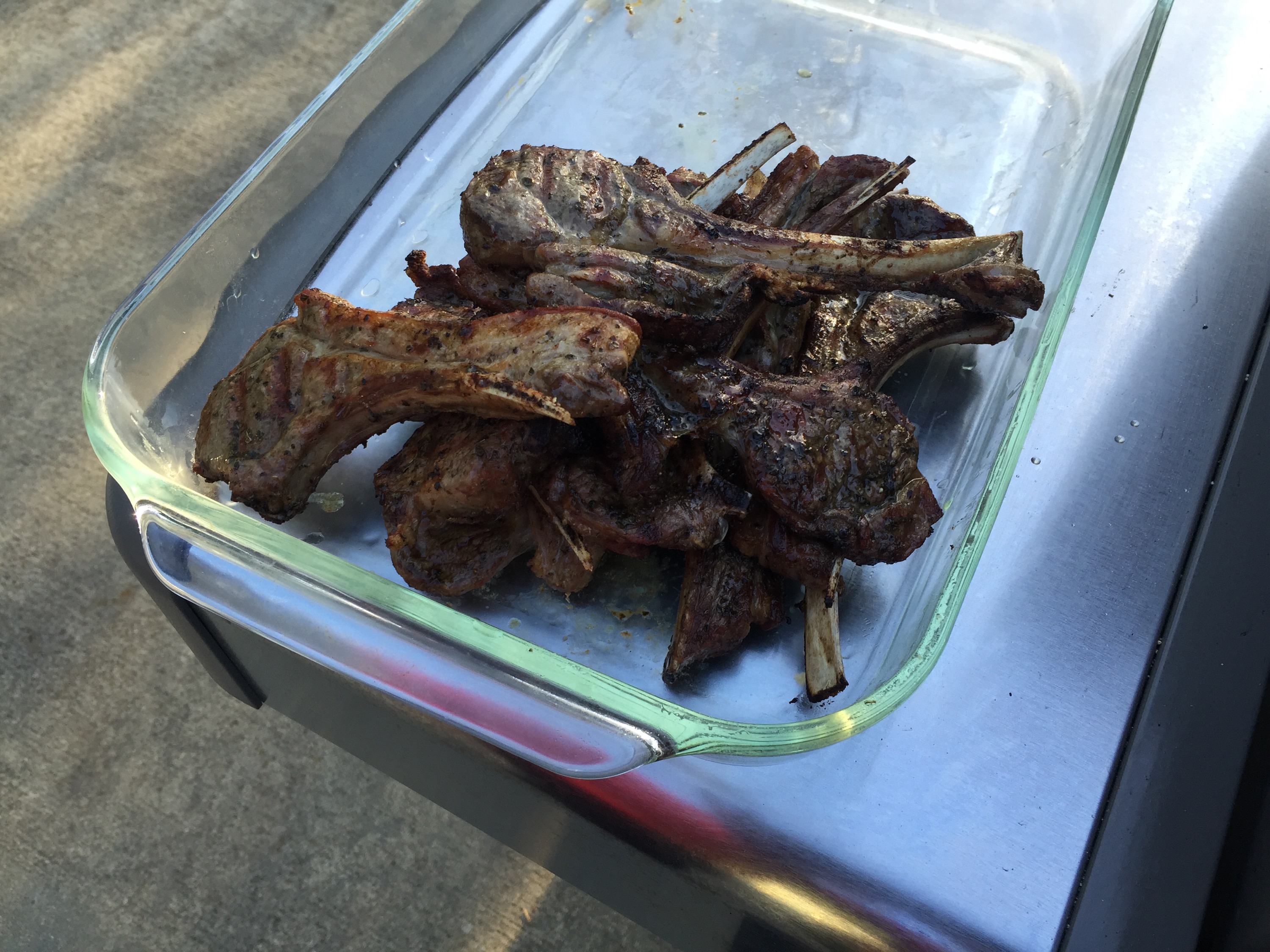
The way God intended to eat lamb…
Had the good fortune last week to be invited to a special dinner with Doug Wilson. The dinner was a lot of fun. Doug was forthcoming.
One question I did ask him was whether he intended to do the rebuild before or after the LA Kings fiasco. His response was fascinating. In his mind the decision to do the rebuild was made when Clowe and Murray were traded. He pointed out that he went after draft picks not players.
Since I don’t believe people intentionally lie to me, I am going to take him at face value.
As a long suffering Montreal fan, the notion that anyone would give a draft pick for Douglas Murray at that stage of his career was mind-boggling.
My take is that Doug had decided that he was going to age-out Thorton and Marleau. Doug’s plan is to bring in new young players.
He had, essentially, given up on the Marleau and Thorton era to produce a cup. And that is a bitter pill to swallow for many SJ Sharks fans. And I suspect a lot of the discussion with Joe and Patty was centered around the point that Doug was not going to do things necessary to win a cup over the next three years. He was going to be a seller and accumulator of picks. He was going to play young players who were obviously not ready. If Joe and Patty wanted to win a cup before they retired going somewhere else was probably a better option for them.
Not making Thorton or Marleau captain really is about acknowledging that the future is not about them. That they are there to make sure the bottom doesn’t fall out as the team tries to make the transition but that’s it.
FearTheFin, however, is furious. His attitude is that Doug is wasting Thorton’s last few years of elite skill. And I suppose FearTheFin is right.
Look at the end of the day, I think Doug’s strategy may make sense.
Whether it pans out is a topic for another day.
 Sharpham Rustic is a farmhouse cow milk cheese from Devon, England.
Sharpham Rustic is a farmhouse cow milk cheese from Devon, England.
This is a great creamy borderline casual and sophisticated cheese eater cheese!
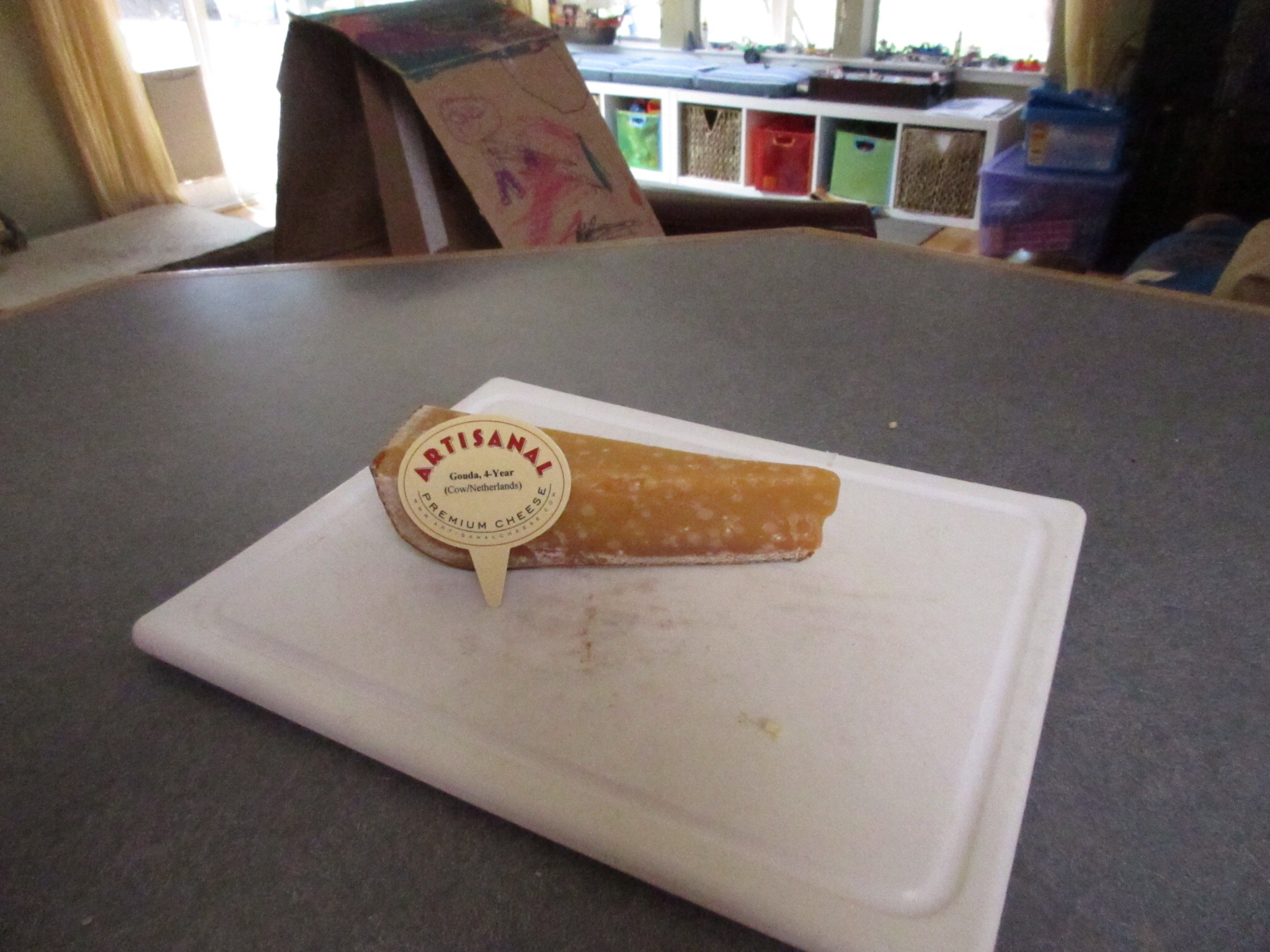
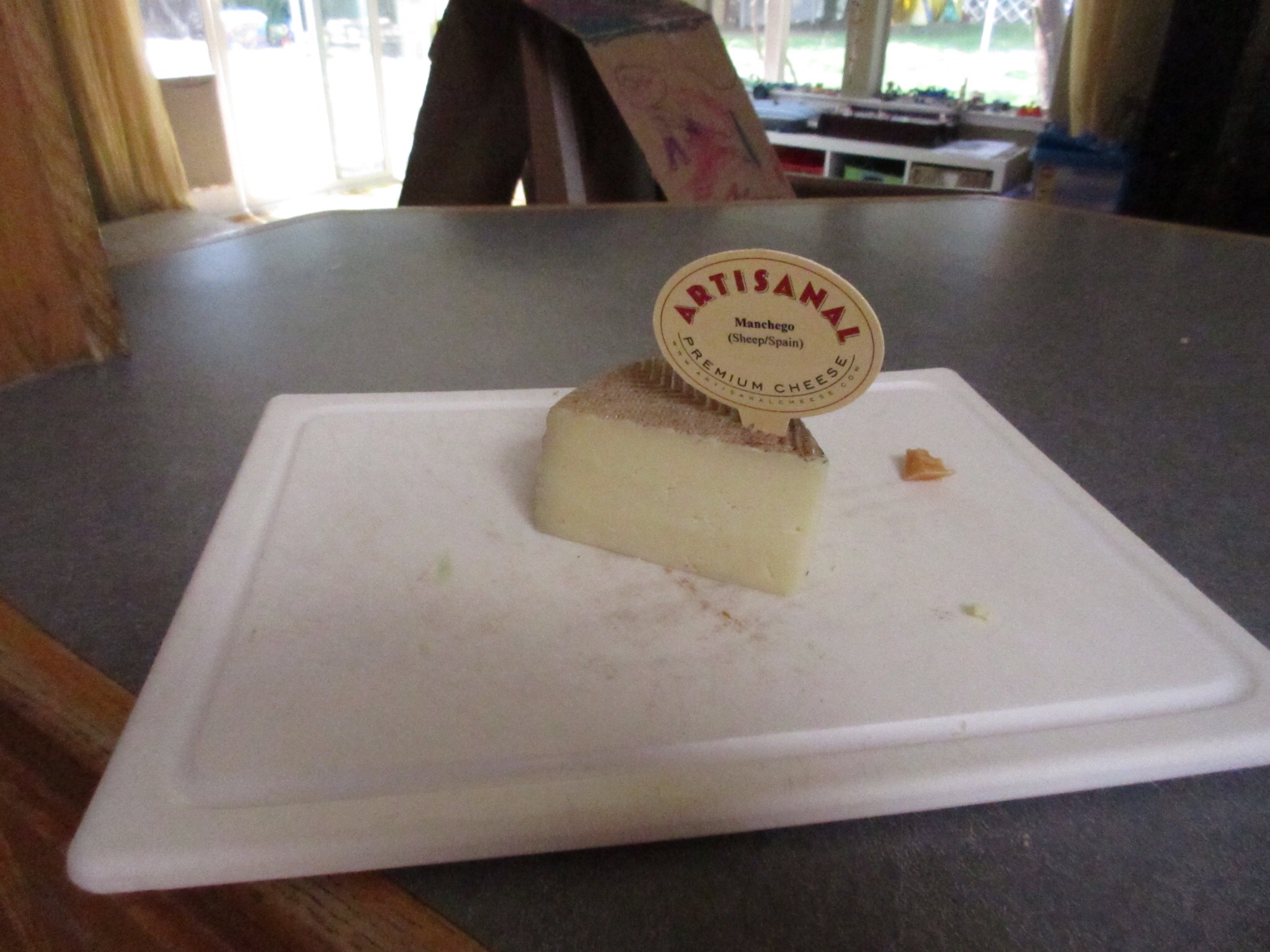
Manchego and Aged Gouda are classics. Definitely casual eater fare…

Nicholas’ stuffed players were lying on the couch talking about hockey stuff….
At the last game of the season, Nicholas asked for a toy. And since it was the last game of the year, dad relented. And Nicholas picked a stuffed Hertl.
Later in the evening after he went to sleep, Natasha and I found him sleeping cuddling both hist stuffed Gallagher (#11) and Hertl … Because in this house we love all of our hockey teams.

I bought this card 30 years ago in Montreal. I bought it before I was into hockey. I bought it because we used to play a version of magic the gathering with hockey cards.
Basically cards had points and value based on the stats on the cards. This card was special because it was an action card.
I kept this card for almost thirty years. It survived moves to Greece, moves in Greece, a move to the USA and moves within the USA.
A few hours before I gave it to doug I almost lost the card but found it …
And finally after thirty years Doug Wilson signed my card!
This card and the fact it got signed today connects me to a moment in my life in a playground in Montreal and all of the moments in between.
Thank you Doug and thank you Sharks!
The Game of Thrones is actually a very subversive book series. The point of the book is to show how sociopaths in power, their lives so divorced from the powerless in their quest for more power and wealth and prestige create mayhem and misery in the lives of the powerless. The entire book is narrated from the perspective of the powerless. The narration forces us to consider repeatedly the utter criminality of the pursuit of power.
The real tragedy of the book is that in the popular zeitgeist we are told to not get emotionally attached to the powerless whose lives are destroyed. That their lives don’t matter. It’s almost as if we missed George RR Martin’s point, their lives do matter and the people that are supposed to take care of those lives however treat them as they don’t. And that is wrong.
We should feel bitter outrage towards the powerful. Our collective social reaction to this subversive book is nothing short of shocking….George RR Martin’s book series The Game of Thrones is a very subtle subversive book that explores the consequences of power on the powerless. In many ways, it’s a political attack on the emerging global power structure.
To get a bit more granular let’s consider what the book is. At a very superficial level the book is ‘House of Cards’ set in a fantasy setting. We have kings and knights and dragons and armies all vying for power.
Except, the book tells us this story through the eyes of the powerless. We see the consequences of the actions of the powerful, because of how it destroys their victims who are our narrators. The narrators are people who are explicitly outside of the power structure of the realm. John Snow is a bastard. Arya and Sansa are girls. Cersei is a woman. Tyrion is a cripple. If the narrators are not women, cripples or children, but men, they are men that are limited in how much power they can get or can wield. We have Eddard Stark who has power but can’t wield it. Or we have Davos Seaworthy who is ultimately a victim of the actions of his lord Stannis Baratheon.
Consider the first chapter of the book. The narrator is a Ranger named Will. Waymar Royce, the leader of the Ranger patrol arrogantly, leads his men into an encounter with the others over the objections of Will and Gared. The encounter with the others leads to Will and Waymar’s death. From the very outset of the book, the two most important parameters of the book are made clear: men in power seek more power and glory, and the powerless die along with them.
Or consider Lord Varys who implores an imprisoned Ned Stark to take the deal being offered to him. A deal that will save his children. Lord Varys points out how when the last King waged war his innocent children died. And asks us to consider how the innocent are always the victims while the powerful play their Games of Thrones.
Or consider the treatment of Sansa. Sansa in many ways exists to remind us of the childish belief that powerful men exist to protect the powerless. That powerful men are like good fathers who are there to keep the bad guys away. The embodiment of that ideal in her mind and in the popular lore of the realm are knights. And yet throughout her imprisonment by Geoffrey, it’s knights that beat her. And not just any knights, but the most respected and virtuous of knights – the king’s guard. The people who show her kindness are The Hound who is not a knight or a fool who was once a knight. We are forced to either ignore the narrative or consider that men with power use that to power to reinforce or extend their power not to protect the powerless.
The book repeatedly forces the reader to realize that the powerful, in their attempts to extend their power, wreck havoc on the weak. That the powerless are blameless victims of the sociopathy of the powerful.
There is no doubt in my mind that George RR Martin loathes the powerful characters of his book. That he feels nothing but compassion for the weak. And that he goes to great lengths to make us feel how pathetically said their lives are.
What’s really distressing is that if you accept this point of view, then we are all missing the point. Instead of not getting emotionally attached to every single weak character whose life is destroyed by a sociopath with power, we should get emotionally attached to them and feel seething outrage towards the powerful men who cause the havoc.
And if we can feel that, maybe we can take that outrage into the real world.
George RR Martin’s books are a very elegant subversive attack on the powerful. In our new world order where the separation between the average man and the rich and powerful is accelerating, where it is possible to imagine men in power fighting wars over honor, it’s worth remembering that those wars have victims and those victims are not the men but the children who get in the way.
Children like Sansa. George RR Martin refuses to let us forget.
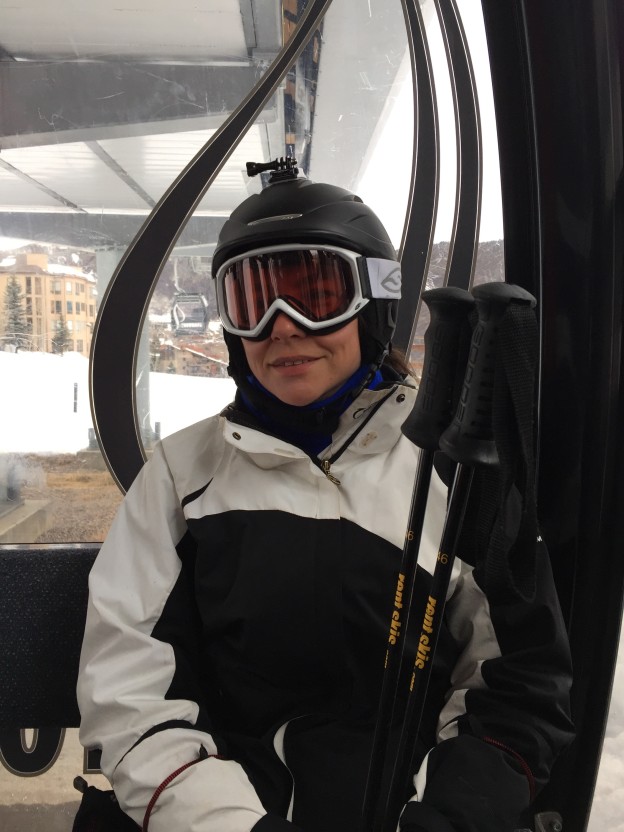
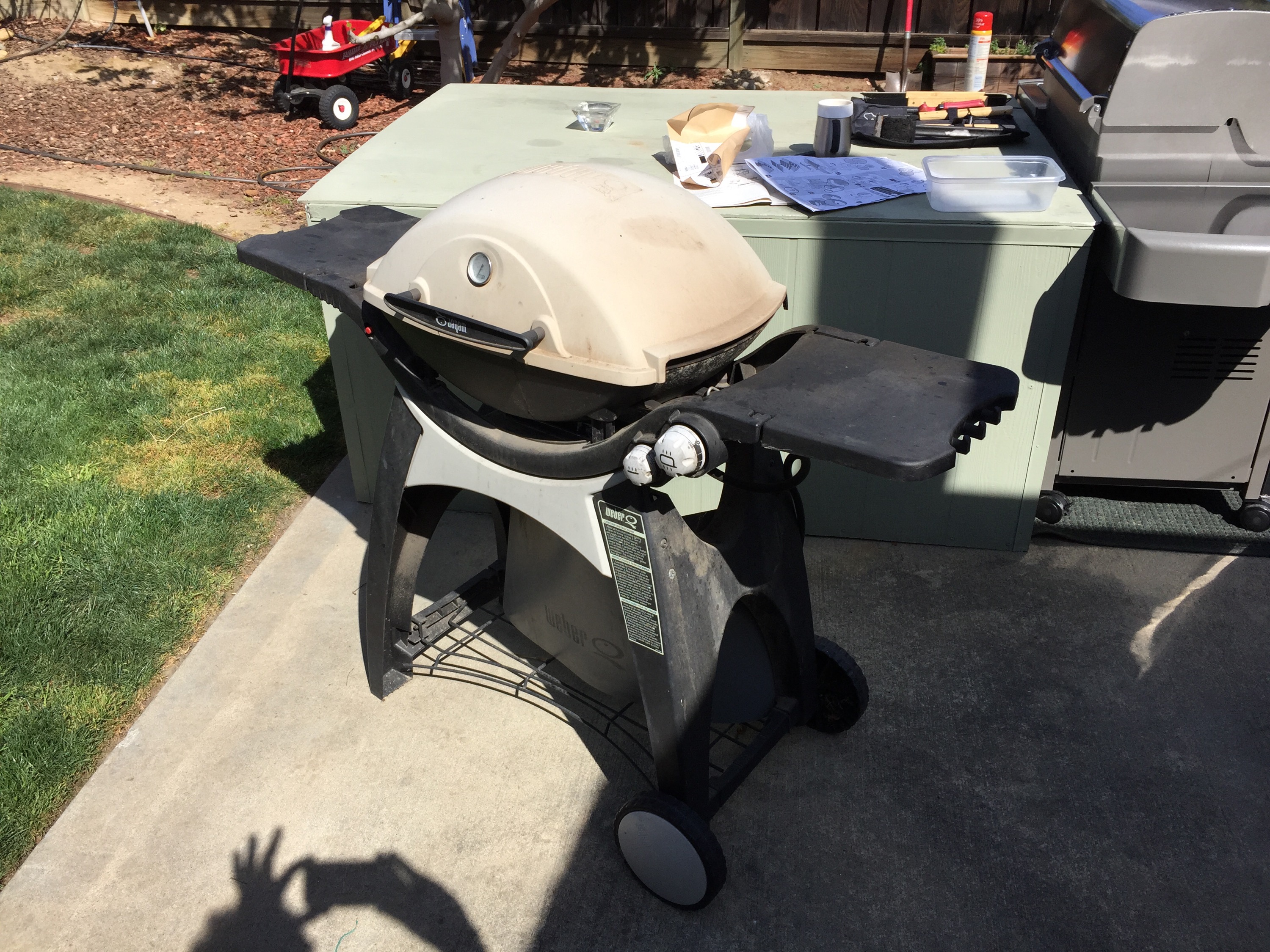
My first grill.

My new shiny grill with searing station!
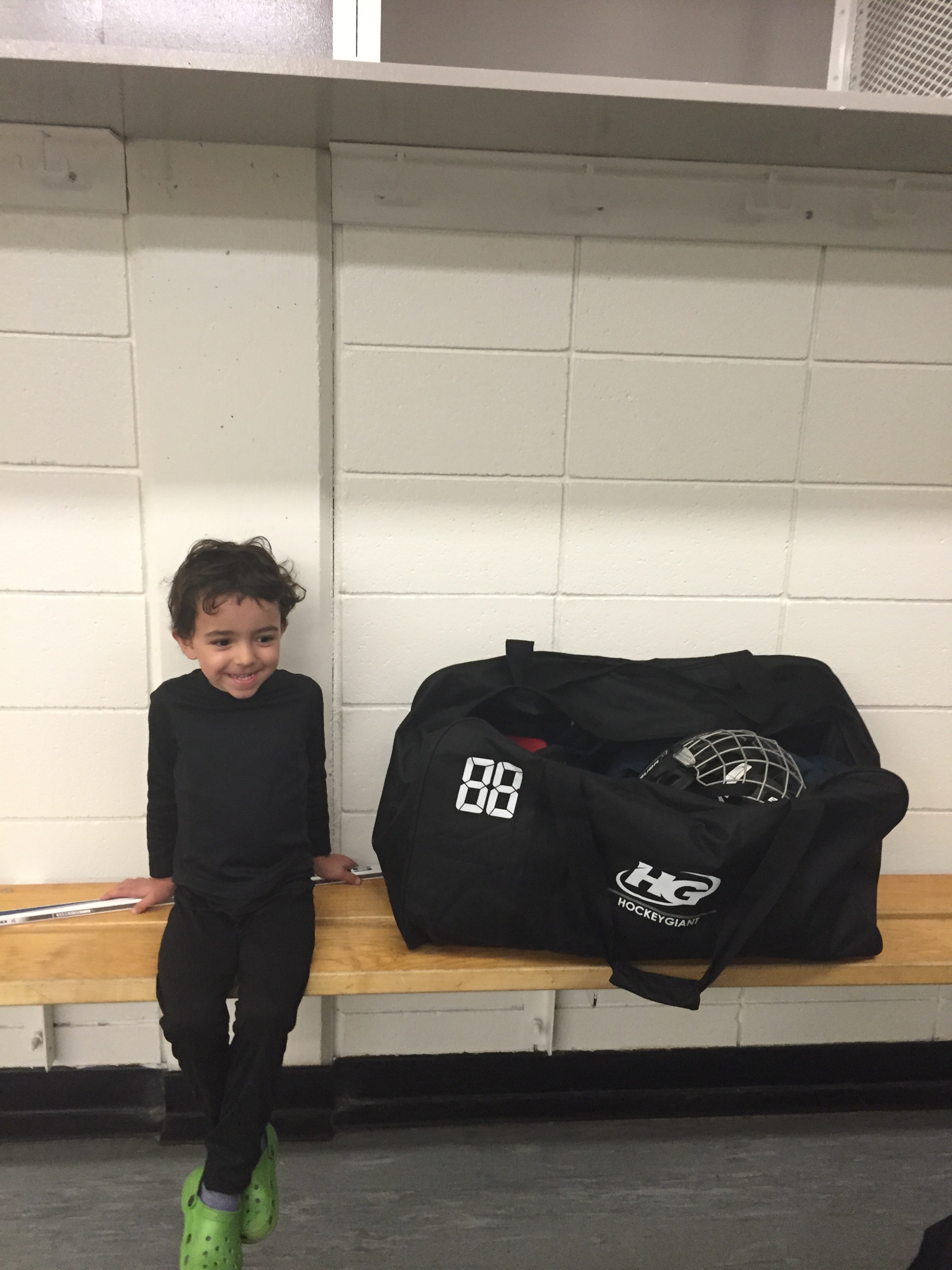
Mom is allowed in the locker room 🙂
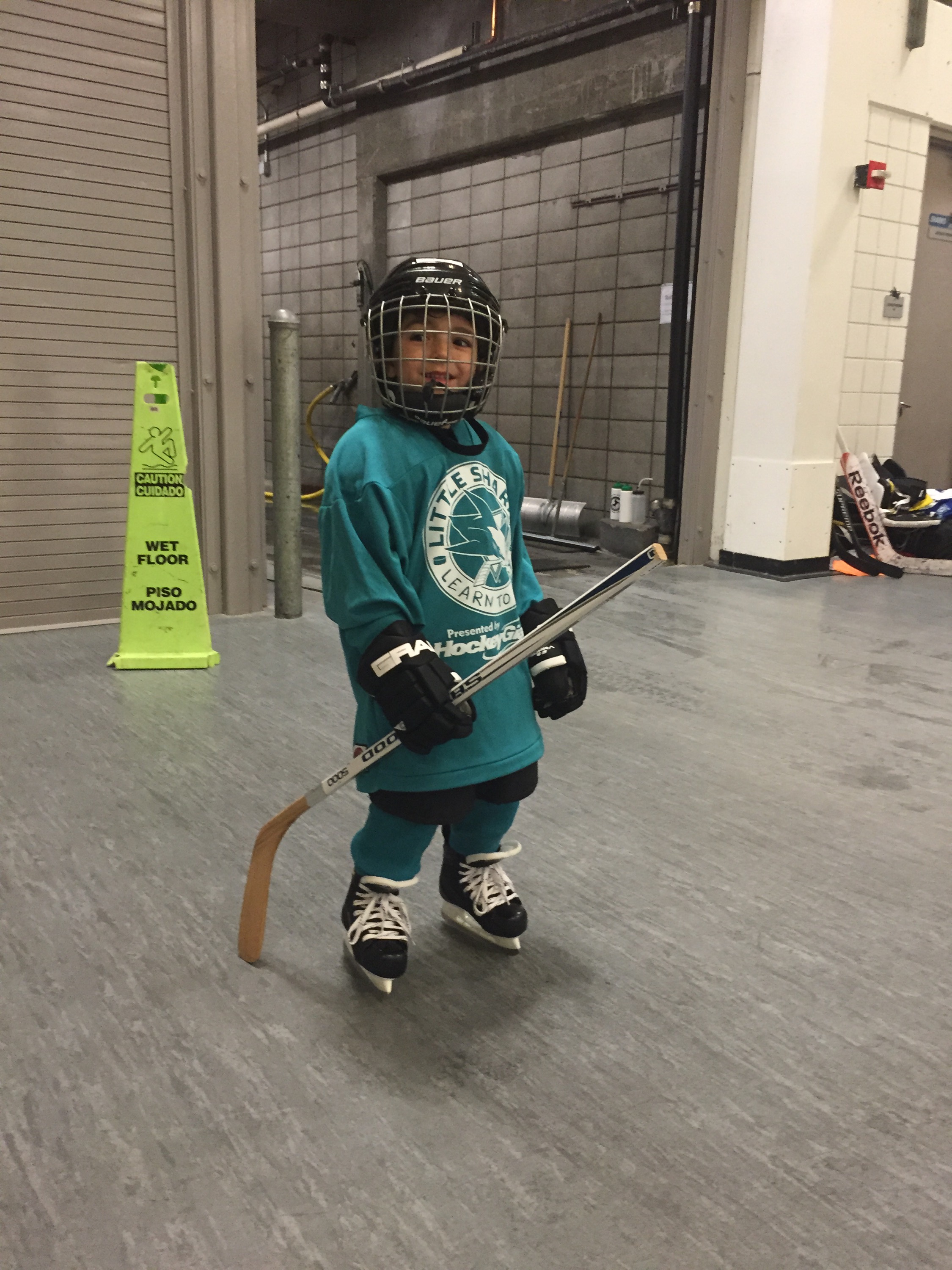
Dressed to play!
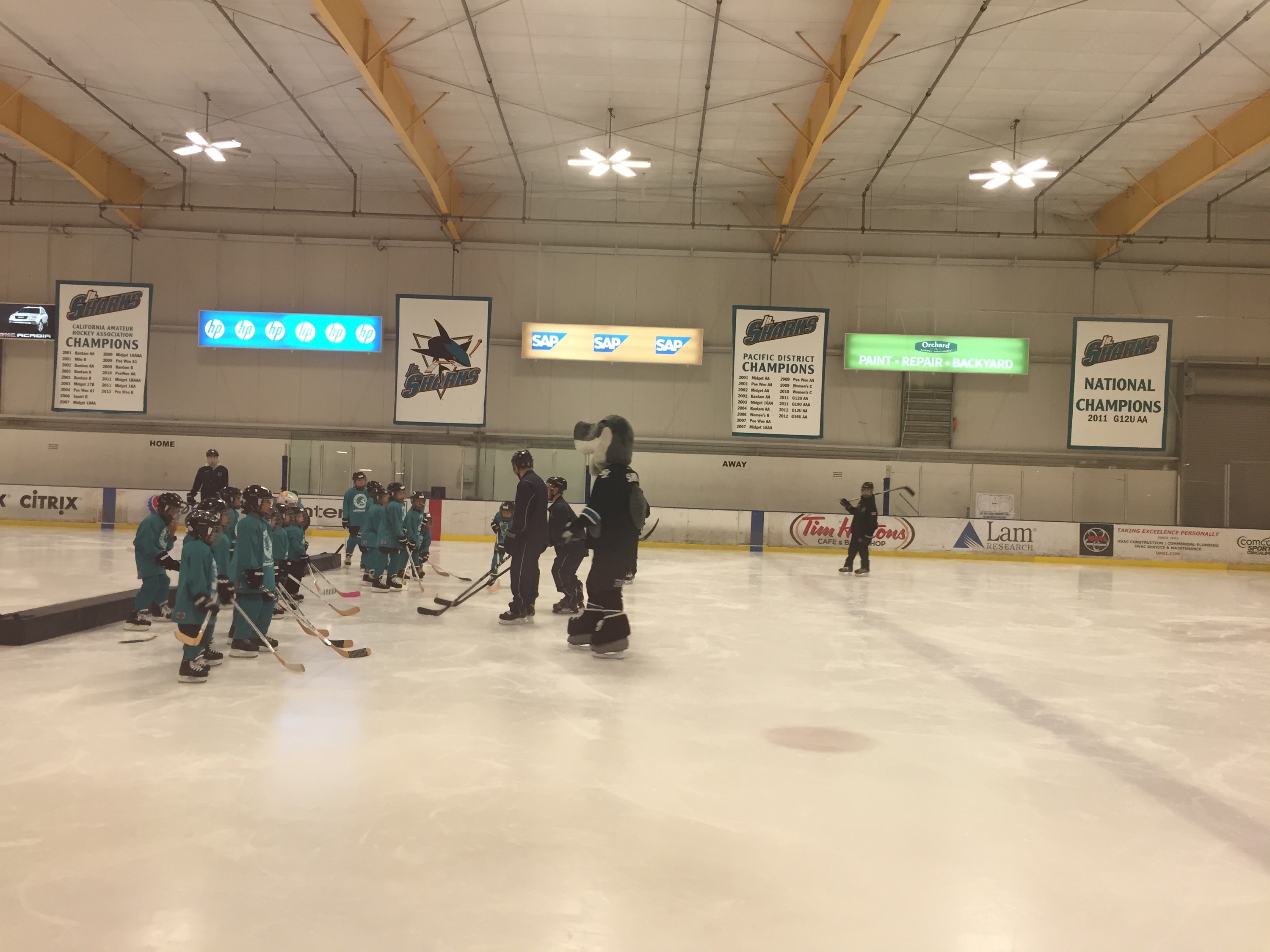
Sharkie!
The San Jose sharks decision to invest in youth hockey is brilliant. Sharkie probably just cost me one more year of season tickets 🙂